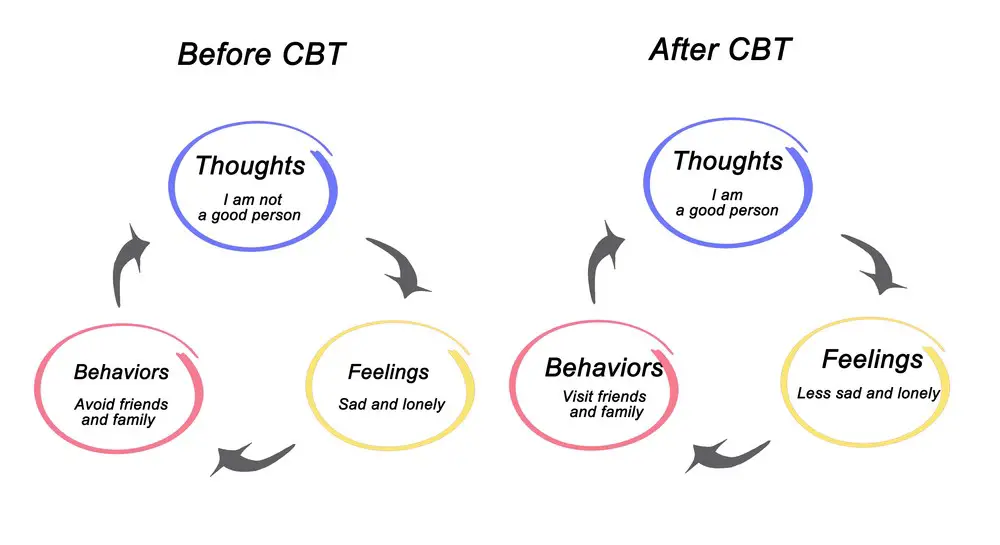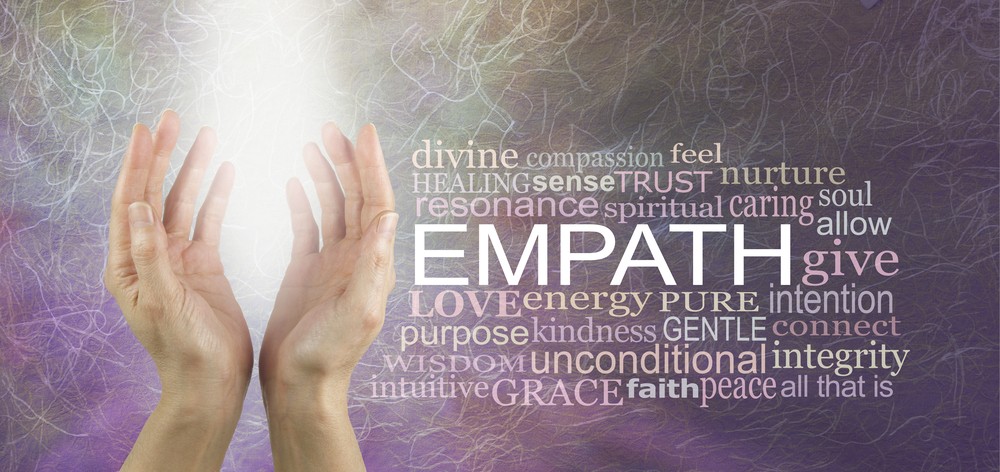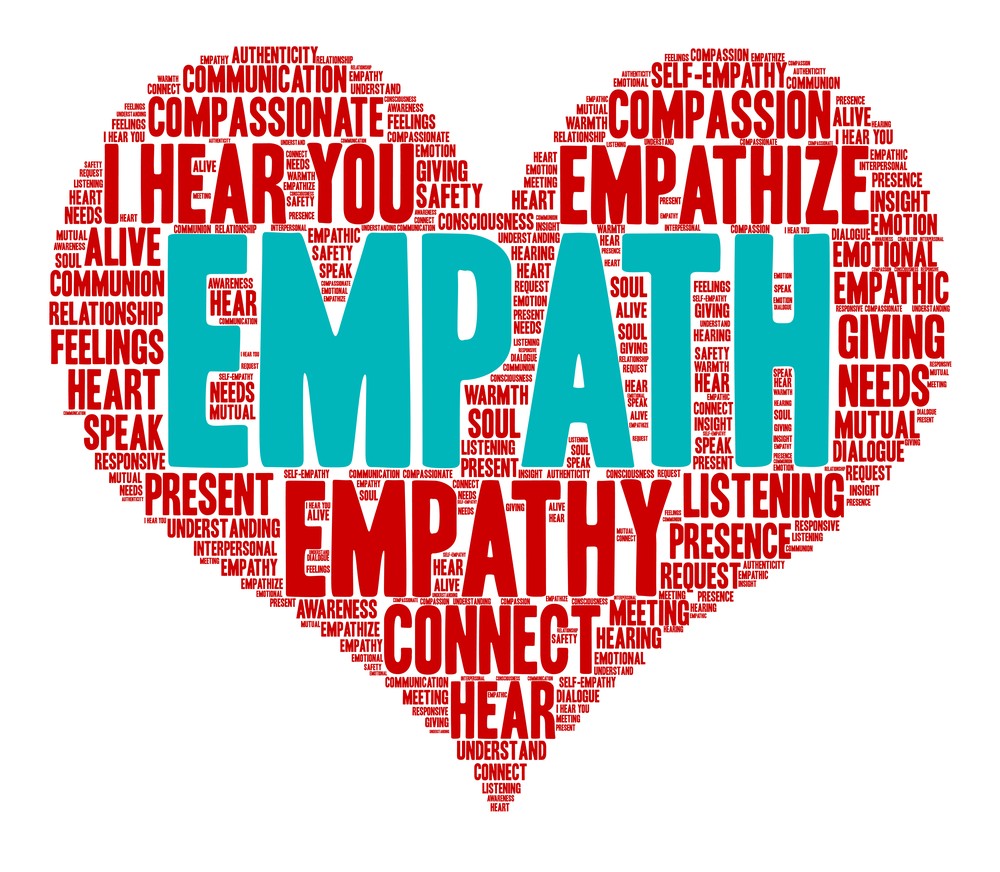As a BetterHelp affiliate, we receive compensation from BetterHelp if you purchase products or services through the links provided
Empathy is an essential human ability, but it reaches an extraordinary level for some individuals. These individuals, often referred to as empaths, have a heightened capacity for sensing and understanding the feelings and emotions of others. While their innate sensitivity can be a gift, it can pose unique challenges and make maintaining healthy emotional boundaries and self-care essential to their well-being.
To cope with their heightened sensitivity to emotions, empaths often seek ways to understand their own experiences and emotions better. One support option that has become increasingly popular among empaths is therapy. Tailored specifically to their needs, therapy for empaths can help navigate the complexities of empathy to improve emotional well-being and cultivate resilience.
Key Takeaways
- Empaths possess an exceptional ability to sense and understand the feelings of others.
- Therapy can offer empaths tools and support for maintaining emotional boundaries and self-care
- Strengthening resilience and understanding emotions are important aspects of therapy for empaths.
 Understanding Empaths
Understanding Empaths
Empaths are individuals who possess a heightened level of sensitivity and compassion. They are capable of deeply experiencing and understanding the emotions and feelings of others. This unique ability allows empaths to be exceptionally empathetic and supportive towards the people around them.
One of the key traits of empaths is their heightened sensitivity to the emotions of others. This sensitivity allows them to pick up on even the subtlest changes in someone’s emotional state. They can often “feel” the emotions of others as if they were their own, leading to a deep sense of connection and understanding with others. As a result, empaths can form strong, lasting bonds with the people in their lives.
While generally considered a positive trait, empathy can present challenges for empaths. Due to their intense emotional connection with others, they may find it difficult to differentiate between their feelings and those of others. This can cause emotional exhaustion and, in some cases, lead to the empath placing the needs of others above their well-being.
Despite these challenges, empaths possess a unique gift to offer the world. Their compassion and sensitivity are qualities that can inspire and support others. However, empaths must develop strategies for managing their emotional well-being and setting boundaries in their relationships to maintain a healthy balance between empathy and self-care.

Challenges Faced by Empaths
Empaths are individuals who possess a heightened sense of empathy, allowing them to understand and connect with the emotions of others easily. While this ability can be a gift, it also presents a unique set of challenges for empaths regarding their mental health and well-being.
One of the primary challenges empaths face is the stress and anxiety that can come from absorbing other people’s emotions. This may cause empaths to feel overwhelmed by the energy they receive, leading to emotional and physical exhaustion. In some cases, prolonged exposure to the stress and anxiety of others may even contribute to the development of depression and other mental health disorders.
In addition to the toll on their mental health, empaths’ heightened sensitivity can make navigating relationships difficult. They may find it challenging to establish boundaries with others, as they naturally want to offer support and understanding. This can lead to empaths becoming emotionally drained as they prioritize the needs of others over their well-being.
Empaths might also be more susceptible to trauma, both through their experiences and by empathizing with the trauma of others. Witnessing another person’s traumatic experience or absorbing their emotions can profoundly impact an empath’s psyche, potentially leading to symptoms of post-traumatic stress disorder (PTSD).
Another challenge empaths face is understanding and interpreting body language. Because they are so attuned to the emotions of others, they might worry and feel stressed when interpreting subtle signals that can be easily misread. Consequently, this can result in fears of misunderstanding others and creating conflict.
Empaths may also find themselves more vulnerable to individuals with narcissistic personality disorder. Narcissistic individuals seek out empathic people who are likelier to provide the validation and attention they crave. This dynamic can become unhealthy, as narcissists might manipulate and exploit the empathy of their target, causing lasting damage to the empath’s emotional well-being.
In conclusion, being an empath comes with its own set of unique challenges. Although empaths can connect with others deeply emotionally, they must also learn to navigate the potential stress, anxiety, and overwhelming energy accompanying their heightened sensitivity. By recognizing the signs of an empath and building resilience in the face of adversity, these individuals can work towards maintaining their emotional balance and overall well-being.
 The Importance of Boundaries for Empaths
The Importance of Boundaries for Empaths
Empaths are often highly sensitive individuals who have a keen ability to sense the emotions and energies of those around them. This gift can be both a blessing and a curse, as empaths can often become overwhelmed by their emotional weight. Setting boundaries is a crucial aspect of self-care for empaths to maintain their emotional well-being and avoid the detrimental effects of absorbing too much negative energy.
One of the primary reasons empaths need to establish boundaries is to protect their energy. By instituting clear and firm limits with others, an empath can ensure they are not taking on excessive emotions and energy from those around them. This protection allows empaths to maintain their sense of self and prevent feelings of exhaustion or burnout.
Setting boundaries also helps empaths discern which emotions are their own and which belong to others. This can be a difficult skill to master, as empaths often instinctively absorb the emotions of others without conscious intention. By implementing boundaries, empaths can create a healthy separation between their emotions and those of others, enabling them to understand better and process their feelings.
Empathy must know their needs and limitations to set and maintain boundaries effectively. This self-awareness can be cultivated through various resources such as books, workshops, and support groups specifically tailored for empaths and sensitive individuals. These resources offer valuable guidance and practical tools for honing an empath’s ability to establish and enforce personal boundaries.
Moreover, incorporating self-care routines and practices can strengthen an empath’s ability to maintain boundaries. This might include meditation, exercise, journaling, or engaging in creative outlets to release excess energy and promote emotional balance.
In summary, boundaries play a vital role in the emotional well-being of empaths. By setting and maintaining clear limits with others, empaths can protect and preserve their energy, better distinguish their emotions from those of others, and ultimately develop a stronger foundation for their emotional health. Accessing resources and engaging in self-care practices can further support an empath’s journey to cultivate and uphold healthy boundaries.
 Exploring Therapy Options for Empaths
Exploring Therapy Options for Empaths
Empaths often find themselves overwhelmed by the emotions of those around them, making it difficult to navigate daily life. Therapy can help empaths develop coping mechanisms and learn to manage their empathic traits more effectively. This section explores several therapy options available for empaths.
Traditional therapy, such as one-on-one sessions with a psychotherapist or counselor, can be an excellent choice for empaths. A professional with experience working with empathic clients can provide valuable guidance and support. Techniques such as mindfulness, grounding, and emotional regulation can be taught to help empaths better manage their sensitivities.
Online therapy is gaining popularity for its convenience and accessibility. Empaths can benefit from this form of therapy, as it allows them to connect with a therapist from their home. Online therapy platforms usually offer various communication options, including video calls, messaging, and phone calls, providing flexibility for clients’ preferences and needs.
Group therapy can be another useful option for empaths. Joining a group of like-minded individuals can provide a sense of belonging and understanding while offering the opportunity to learn from others’ experiences. Empaths can share their challenges, coping strategies, and personal growth within a supportive community of peers.
Empaths must choose a therapy method that aligns with their goals and needs. Some may prefer the in-person connection of traditional therapy, while others may find solace in the accessibility of online therapy or the supportive environment of group therapy. No matter the choice, the ultimate goal is to nurture emotional well-being and empower empaths to thrive in their unique abilities.
 Self-Care Practices for Empaths
Self-Care Practices for Empaths
Empaths have a unique ability to sense and absorb the emotions of others, which can sometimes lead to emotional overload. Implementing self-care practices is crucial for their well-being. A blend of various techniques can aid in coping effectively with overwhelming emotions and maintaining their emotional balance.
Meditation is a fundamental practice to develop self-awareness and cultivate a sense of inner peace. Empaths can benefit immensely from daily meditation sessions, as it helps to quiet the mind, improve mental clarity, and regulate emotions.
Another essential self-care practice revolves around setting healthy boundaries. Empaths must learn the skill of detachment and prioritize their own needs. Acknowledging personal limits and taking breaks from emotionally draining situations can help prevent empathy burnout.
Engaging in activities that bring joy and relaxation also supports well-being. Hobbies such as painting, gardening, or yoga can serve as an outlet for stress, providing a necessary emotional respite for empaths. These activities foster a sense of accomplishment, contributing to overall happiness.
Self-compassion helps empaths to heal from any negative experiences. Rather than being critical of themselves or feeling overwhelmed by the emotions of others, they should practice kindness and understanding towards themselves. This nurtures a healthier mindset and promotes emotional resilience.
In summary, a combination of meditation, detachment, pursuing enjoyable activities, and practicing self-compassion are vital self-care practices for empaths. By incorporating these actions, they can achieve greater well-being and effectively manage their unique emotional abilities.
 Understanding and Coping with Emotional Pain
Understanding and Coping with Emotional Pain
Empaths experience emotional pain deeply, as they have a heightened ability to sense and absorb the emotions of others. Fear, guilt, anger, post-traumatic stress, and other forms of distress can become overwhelming for empaths, often impacting their daily lives.
One of the key factors in coping with emotional pain is recognizing the source of the emotions. Empaths should maintain self-awareness and differentiate between their emotions and those they pick up from others. This can be achieved through practices like mindfulness and grounding techniques.
Empaths need to establish boundaries in relationships to avoid absorbing the negative emotions of others. Communicating openly with friends and family about their emotional needs can also effectively manage their emotional health.
Creating emotional distance is crucial when empaths encounter dark empaths with empathic traits and manipulative tendencies. By recognizing the signs of a dark empath, such as emotional abuse or controlling behavior, empaths can distance themselves from harmful relationships and seek support from trusted individuals.
To cope with emotional pain, empaths can benefit from various techniques:
- Journaling: Writing down emotions and experiences can help empaths process their feelings and gain clarity about their emotional state.
- Therapy: Regular sessions with a mental health professional familiar with the empath experience can provide the support and tools needed to manage emotional pain.
- Meditation: Practicing meditation can help empaths develop mindfulness and learn to navigate emotional responses more effectively.
- Self-care: Prioritizing self-care and personal development activities may reduce the impact of external emotional pain.
As empaths navigate the complexities of their emotional world, understanding and implementing coping strategies can help them manage emotional pain and improve their overall well-being.
 Understanding Highly Sensitive People
Understanding Highly Sensitive People
Highly sensitive people (HSPs) are individuals with a heightened level of sensitivity, meaning they perceive their environment more intensely than others. This sensitivity extends to physical stimuli, such as noises or lights, and emotional experiences, such as the feelings of others around them.
This heightened sensitivity has both advantages and disadvantages. For example, HSPs often possess high levels of empathy and understanding, which can foster strong connections and close relationships with others. On the other hand, it can also make them vulnerable to emotional overwhelm and require additional tools for self-care.
It is important to note that being highly sensitive is not a disorder but a personality trait. Studies estimate that around 15-20% of the population are HSPs, equally distributed between genders. This trait is believed to have an evolutionary purpose, as HSPs tend to exhibit a heightened awareness of potential dangers and opportunities.
Recognizing and managing their unique characteristics is the key to thriving as a highly sensitive person. For many HSPs, this involves adopting certain strategies to help them navigate the challenges of living in a predominantly non-sensitive world. These strategies might include setting boundaries with others, learning to prioritize self-care, and seeking out environments and relationships that support their sensitivity.
In summary, HSPs possess unique qualities that can be both beneficial and challenging. Acknowledging and understanding these characteristics is vital for the individual and their loved ones to support and empower the highly sensitive person in their life.
 Role of Intuition in Empaths
Role of Intuition in Empaths
Empaths possess a unique ability to understand others’ emotions, thoughts, and energy. They rely heavily on their intuition, their sixth sense, to navigate the world and interact with people. This gift allows them to connect with others on an emotional and mental level deeply.
Intuition is an innate ability that goes beyond logical thinking. It manifests as a gut feeling or an instant understanding of a situation, often without needing any specific data points. Empaths use this skill to quickly pick up on the emotions and vibrations of others, providing them with invaluable insights into the needs and desires of those around them.
Mirror neurons, a type of brain cell, contribute significantly to the empath’s abilities. These neurons are responsible for allowing us to experience the emotions and actions of others as if they were our own. Empaths, with their highly sensitive nature, have a heightened responsiveness to these mirror neurons.
Empaths and their intuitive abilities can greatly benefit from practicing self-care and setting healthy boundaries. By learning to differentiate their own emotions from those of others, empaths can minimize emotional overload. Ultimately, a well-balanced empath can use their intuitive gift to effectively help others and maintain their mental and emotional well-being.
Notable Empath Experts And Their Works
Dr. Judith Orloff is a renowned psychiatrist, empath, and author of several influential books on empathy. As an empath herself, Dr. Orloff’s work aims to help other empaths understand and manage their sensitivities. Her bestselling books, “The Empath’s Survival Guide” and “Emotional Freedom,” offer practical advice, tools, and techniques for empaths to protect their energy, set boundaries, and thrive in today’s fast-paced world.
In addition to her books, Dr. Orloff travels the world conducting workshops and training for empaths, healthcare professionals, and caregivers. Her teachings aim to help attendees understand the power of empathy and intuition in their personal and professional lives.
Elaine N. Aron, a psychologist and empath, has significantly contributed to understanding empaths through her groundbreaking research on the Highly Sensitive Person (HSP). Her pioneering work, “The Highly Sensitive Person,” was the first book to define and explore the trait, providing knowledge, resources, and guidance to those with a higher sensitivity level. Aron’s other works, such as “The Highly Sensitive Person In Love” and “The Highly Sensitive Child,” further delve into different aspects of the HSP experience.
These empath experts have greatly contributed to the understanding and support of individuals with heightened emotional sensitivities and have created valuable resources for empaths worldwide.
Empath Tests and Resources
Empaths are individuals who can deeply sense and absorb the emotions of others around them. This heightened level of sensitivity can be both a gift and a challenge. Several empath tests and resources are available to understand better and manage this unique trait.
One popular empath test is the Empath Self-Assessment, which consists of a series of questions designed to help individuals gauge their level of empathy. This test can be found on websites such as Dr. Judith Orloff’s page, a renowned empath expert and author of “The Empath’s Survival Guide.” The questions explore different aspects of empathy, including emotional, physical, and intuitive sensitivities.
Another useful empath test is the Highly Sensitive Person (HSP) Assessment, which evaluates the individual’s susceptibility to stimuli in their environment. Although not specific to empaths, many empaths also identify as highly sensitive people.
In addition to empath tests, numerous resources are dedicated to helping empaths understand and navigate their abilities. Some of these resources include:
- Books: Numerous books offer guidance and insights for empaths, such as “The Empath’s Survival Guide” by Dr. Judith Orloff and “The Highly Sensitive Person” by Dr. Elaine Aron. These books provide valuable coping strategies and advice tailored to the specific needs of empaths.
- Online forums and communities: There are several online platforms where empaths can connect with others who share similar experiences and challenges. Platforms like Reddit, Facebook groups, and empath-specific websites like empathcommunity.eliselebeau.com offer safe spaces for discussions, questions, and sharing insights.
- Workshops and courses: Workshops, such as those offered by the Shift Network, provide empaths with structured learning experiences and opportunities to develop their skills. These courses typically cover setting boundaries, self-care practices, and enhancing intuitive abilities.
- Professional support: Empaths seeking personalized guidance may consider working with a therapist or coach experienced in empath-related challenges. For example, the International Center for Reiki Training maintains a directory of practitioners specializing in this area.
These empath tests and resources can help individuals better understand their empathic abilities and provide support for managing the unique challenges they may face. Empathy can learn to harness their innate sensitivity for personal growth and the greater collective good by utilizing these tools.
 The Role of Resilience for Empaths
The Role of Resilience for Empaths
Resilience plays a vital role in the lives of empaths, individuals with the innate ability to perceive and absorb the emotions of others. Empaths often experience an overwhelming surge of sensations, making it crucial for them to develop resilience to thrive.
One of the primary reasons resilience is essential for empaths is that it helps them maintain a healthy emotional balance. By building resilience, empaths learn to regulate their emotions and prevent negative experiences from affecting their overall well-being. Techniques such as mindfulness and grounding exercises can strengthen resilience, enabling empaths to withstand emotional turbulence more easily.
In addition, resilience allows empaths to set necessary boundaries. Being constantly exposed to various emotional states can be draining, and empaths need to know when to step back. Solidifying emotional boundaries not only helps preserve their energy but it also hones their ability to discern between personal feelings and those picked up from others.
Another aspect to consider is that resilience can positively impact an empath’s relationships. By developing a strong sense of self and the ability to cope with emotional stress, empaths become better equipped to navigate social interactions. They can communicate effectively with those around them and improve the quality of their connections.
In conclusion, resilience is an indispensable skill for empaths as it contributes to their emotional regulation and overall well-being. By cultivating resilience, they can better manage their unique abilities and experience more fulfilling lives.
 The Quest for Happiness
The Quest for Happiness
Empaths are individuals who possess a heightened level of cognitive empathy, enabling them to understand and absorb the emotions of others. This gift, while valuable, can often result in feelings of overwhelm and social anxiety. For empaths, the quest for happiness thus involves learning how to navigate their emotional landscape while maintaining balance and well-being.
One crucial aspect of achieving happiness for empaths is the development of healthy boundaries. Empaths are naturally inclined to offer a listening ear and provide emotional support to those around them. But when the empath takes on too much emotional baggage, it can lead to burnout and decreased mental health. Establishing clear boundaries allows the empath to engage with others while preserving their energy and emotional health.
Self-care is another key element for happiness in empaths. Due to their heightened sensitivity, empaths can be more susceptible to anxiety and stress. Integrating regular self-care practices, such as exercise, mindfulness meditation, or even spending time in nature, can help combat these negative emotions and promote overall well-being. By regularly attending to their physical and emotional needs, empaths can create a balanced and stable foundation to navigate their world.
Finally, building a strong support system is essential for happiness in empaths. Positive social connections are crucial for mental health, and a caring, like-minded community can provide a safe space for empaths to express themselves and recharge. Cultivating these relationships with friends, family members, or even support groups designed specifically for empaths can make the journey toward happiness more enjoyable and fulfilling.
In conclusion, the quest for happiness for empaths involves establishing healthy boundaries, prioritizing self-care, and building a strong support system. By focusing on these key areas and facing their unique challenges, empaths can achieve a sense of balance and well-being, harnessing their cognitive empathy and connecting with others meaningfully and authentically.
Frequently Asked Questions
 What are common therapies for empaths?
What are common therapies for empaths?
Several therapies can be beneficial for empaths, including Cognitive Behavioral Therapy (CBT), Dialectical Behavior Therapy (DBT), and Acceptance and Commitment Therapy (ACT). These therapies focus on building skills to manage emotions, reduce stress, and improve communication.
How can CBT benefit empaths?
CBT can help empaths identify and reframe negative thoughts and beliefs, allowing them to gain better control over their emotional reactions. Empathy can develop healthier coping strategies by implementing CBT techniques to effectively manage sensitivity and emotions.
Can therapy address complex PTSD in empaths?
Yes, therapy can address complex PTSD in empaths. Trauma-focused therapies, such as Eye Movement Desensitization and Reprocessing (EMDR) and Prolonged Exposure Therapy (PET), are designed to target symptoms of complex PTSD, helping empaths to process traumatic memories and reduce distress gradually.
What strategies do highly sensitive people use in therapy?
In therapy, highly sensitive people often learn strategies to cope with their sensitivity, such as setting boundaries, practicing self-care, and building resilience. Therapists may also teach grounding techniques and mindfulness practices to help manage overwhelming emotions.
How do introverted HSP empaths benefit from therapy?
Introverted HSP empaths can benefit from therapy by learning to navigate social situations more comfortably and develop self-awareness. Therapy can help introverted empaths understand and communicate their needs effectively, improving relationships and overall well-being.
What recommendations do psychologists have for empaths?
Psychologists recommend that empaths practice self-care, set boundaries, and seek social support to maintain emotional health. They also suggest therapy to learn coping strategies and gain insight into personal sensitivities. Empaths need to prioritize self-awareness and self-compassion in their daily lives.

Jacob Maslow, a staunch advocate for mental wellness and a therapy veteran, delves deep into empathic self-care in his latest piece, “Unlock Your Inner Strength and Embrace Self-Care with Therapy for Empaths.” Drawing strength from personal challenges, including navigating mental health intricacies with the aid of Lexapro, Jacob brings a unique lens to his writing. His history with an ex-partner’s severe narcissistic tendencies, leading to prolonged custody battles and communication barriers with his children, has deeply informed his perspective. Daily therapeutic walks have been his sanctuary, helping him process and heal. Jacob strives to enlighten and support those battling mental health issues and confronting narcissistic relationships through his writings. Concurrently, his legal portal offers hope to those grappling with contentious custody disputes, underscoring his dedication to aiding others in their need.
- 3 Ways Wearing a Hat Can Help Lower Your Stress Levels - April 19, 2025
- Breaking the Silence: Why Men’s Mental Health Matters More Than Ever - April 15, 2025
- How to Transform a Home’s Patio Space into a Relaxing Space - March 23, 2025
This site contains affiliate links to products. We will receive a commission for purchases made through these links.


 Understanding Empaths
Understanding Empaths The Importance of Boundaries for Empaths
The Importance of Boundaries for Empaths Exploring Therapy Options for Empaths
Exploring Therapy Options for Empaths Self-Care Practices for Empaths
Self-Care Practices for Empaths Understanding and Coping with Emotional Pain
Understanding and Coping with Emotional Pain Role of Intuition in Empaths
Role of Intuition in Empaths The Role of Resilience for Empaths
The Role of Resilience for Empaths The Quest for Happiness
The Quest for Happiness What are common therapies for empaths?
What are common therapies for empaths?
